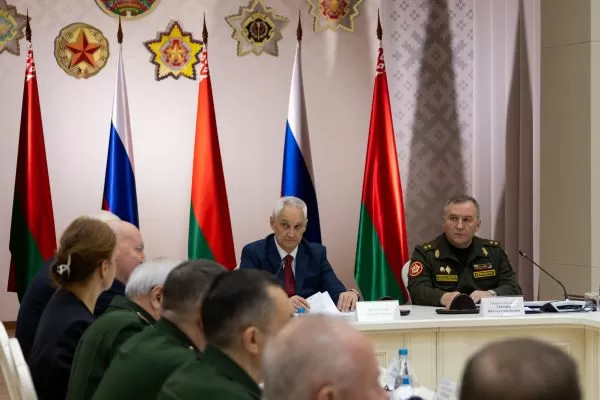Russia May Use Nuclear Weapons in Response to Aggression Against Its Ally Belarus, Russian Defense Minister Says at Joint Military Council Meeting in Minsk
At a recent joint military council meeting in Minsk, Russian Defense Minister Andrey Belousov made a statement that has caused quite a stir in the international community. He declared that Russia reserves the right to use nuclear weapons in response to any aggression against its ally Belarus. This bold statement has raised concerns and sparked debates about the potential consequences of such a move.
Belousov’s statement came in the wake of increasing tensions between Belarus and its neighboring countries, particularly with the European Union and the United States. The Belarusian government has been facing widespread protests and criticism for its handling of the recent presidential election, which many believe was rigged in favor of long-time leader Alexander Lukashenko. The EU and US have imposed sanctions on Belarus in response to the crackdown on protesters and the detention of opposition leaders.
In this context, Belousov’s statement can be seen as a show of support for Belarus and a warning to its adversaries. By mentioning the use of nuclear weapons, he is sending a strong message that Russia will not stand idly by if Belarus is attacked or threatened. This is in line with Russia’s long-standing policy of protecting its allies and maintaining a strong presence in the region.
However, it is important to note that Belousov’s statement does not necessarily mean that Russia will immediately resort to using nuclear weapons in any conflict involving Belarus. It is more of a deterrent, a way to signal to potential aggressors that Russia is willing to take extreme measures to defend its ally. This is a common strategy used by nuclear-armed countries to prevent conflicts from escalating.
Some may argue that Belousov’s statement is reckless and escalatory, especially in the current tense geopolitical climate. However, it is important to understand that Russia’s nuclear doctrine is based on the principle of “no first use” of nuclear weapons. This means that Russia will only use nuclear weapons as a last resort, in response to a nuclear attack or a conventional attack that threatens the existence of the state. Belousov’s statement is simply a reaffirmation of this doctrine and a warning to potential aggressors.
It is also worth noting that Russia and Belarus have a long history of close military cooperation. They are both members of the Collective Security Treaty Organization (CSTO), a military alliance of former Soviet states. Russia has a military base in Belarus and provides the country with military equipment and training. This close relationship further reinforces the idea that Russia will not hesitate to defend its ally if necessary.
In conclusion, Belousov’s statement may have caused some alarm, but it should not be taken out of context. Russia’s nuclear doctrine is based on a defensive strategy, and Belousov’s statement is simply a reaffirmation of this policy. It is a way to deter potential aggressors and show support for Belarus in the face of increasing pressure from the West. It is important for the international community to understand the nuances of Russia’s nuclear policy and not jump to conclusions based on a single statement.

